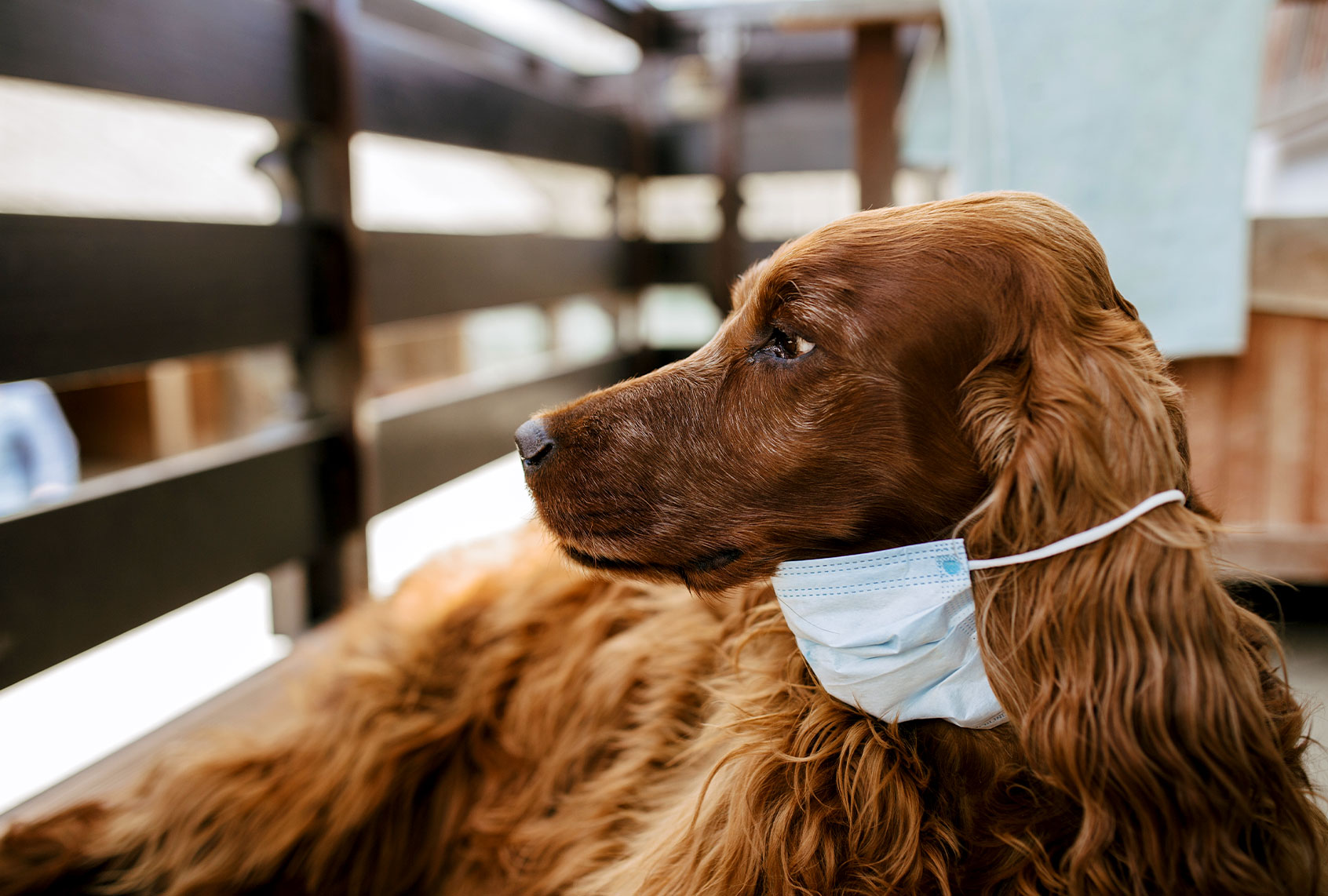Alice Mayn runs Lily’s Legacy Senior Dog Sanctuary, a sanctuary in the small California city of Petaluma for large breed dogs over the age of seven. Recently, she encountered a COVID-19 situation that directly involved her organization’s mission. She was contacted by a 58-year-old former construction worker, John Crowe, who had three large dogs that he could no longer take care of because he was suffering from financial troubles due to the pandemic.
“He had a hunting lodge up in the mountains in California and he’d go off to his business because of it,” Mayn recalled. “And it had to move down to the Bay Area, and he had three dogs that he’d had their whole lives since they were puppies.” They included two Labrador retrievers and one hound mix, between the ages of seven, nine and 11. He surrendered them to Mayn’s sanctuary.
“We were able to find a wonderful home for them together, which was our goal because they were very bonded,” Mayn says. “And since they have gone to their new home, they’re doing very, very well.” Mayn said the new owner is still in contact with the former owner, who is happy that they’re all still together.
Mayn’s story is not unusual. Stories of animals being rescued during the pandemic have made headlines from California to Florida. Reports of drastic increases in animals being abandoned have been reported in states like Alabama, Ohio and Nevada. In the United Kingdom, hundreds of puppies that were purchased during the lockdown are now being disowned and sold.
“Since the month of March, our animal cruelty investigations team, which is 10 full-time animal cruelty investigators, has seen about a 20% increase in abandonment cases,” Julie Kuenstle, vice president of communications and marketing at the Houston SPCA, told Salon, saying that “they’ve just noticed an increase during the pandemic.” (The pandemic began in the United States in March 2020.)
Kuenstle recalled one case in July when, with the Houston Police Department, they resuced “a puppy, four dogs, a Chinchilla, a cat, and a mouse after they were left behind in the sweltering heat in deplorable living conditions.” On another occasion, “there was a dog that was tethered on a very short lease and couldn’t sit down that was abandoned in a field,” which was rescued along with a cat. Still another time Kuenstle recalled an abandoned puppy suffering from hair loss that could not even stand up on its own.
Teresa Chagrin, animal care and control issues manager at Peta Prime, told Salon that this is part of a larger problem.
“We get new [reports] every single day about animals being abandoned, especially intentionally, and often after they are turned away from animal shelters,” Chagrin explained. “This being turned away from animal shelters had started long before COVID-19 and a lot of shelters are just using the pandemic as an excuse to further restrict their intake in order to increase ‘live release rates.'”
Her observation was echoed by Daphna Nachminovitch, senior vice president of the Cruelty Investigations Department at People for the Ethical Treatment of Animals (PETA).
“On our end, where we do field and shelter work in Virginia and North Carolina, we are seeing higher demand for free services, i.e., help with food, end-of-life, spay/neuter assistance, and more,” Nachminovitch told Salon by email. “For some weeks earlier this year, we were hearing regularly from citizens who had been turned away from our municipal shelter here in Norfolk, VA, because that shelter was ‘closed’ – and some of those citizens had animals in urgent need of help, including euthanasia.” Nachminovitch said she has been seeing more incidences of shelters limiting services. That “makes it more difficult for people to surrender animals (limited hours, fees, requiring appointments, altogether not accepting cats), which ultimately means animals are abandoned to fend for themselves on the streets, and others are given away,” Nachminovitch said. “Many shelters have essentially stopped sheltering – a very real concern.”
Nachminovitch also denounced the “hideous consequence” of halting spay/neuter services by many clinics and shelters which decided they were not “essential.” “PETA runs three mobile veterinary spay/neuter clinics and we never stopped running,” she noted. “We just adapted and followed new safety procedures.”
So what can people who love our animal friends do to protect them during these trying times?
“It’s really important before even getting into taking on that responsibility to consider, ‘What will happen if I lose my job? What will happen if I have to move? What will happen?'” Chagrin told Salon. “Make sure that you have arrangements set up or don’t get an animal.”
Chagrin also advocated that “shelters have to keep their doors open and always accept all animals. And don’t charge fees and don’t set up restrictions.” She argued that it is wrong for animal shelters to be pressured “to improve their live release rates and adoption rates,” saying that we should improve spaying and neutering practices and arguing that “closing the shelter doors and saying, ‘No, we’re not gonna take your animal because we’re worried about our statistics’ is an irresponsible and cruel response, but that’s the response that we’re seeing today.”
As for Mayn, she asked people who are too sick to care for their dogs to see “if they had a family member that can help them research rescues. They can help the dogs, particularly if they’re seniors.” She urged people to remember that “the shelters have been overwhelmed with dogs and it’s harder to get, particularly a senior, adopted out of a shelter than it is to get them adopted out of a rescue.” She also said that “for people that have a place to live and can actually keep their dogs, there are resources of nonprofits, for instance, that help individuals cover medical bills for their dogs. So if their vet bills that are too expensive and that sort of thing, there are resources for that.”

